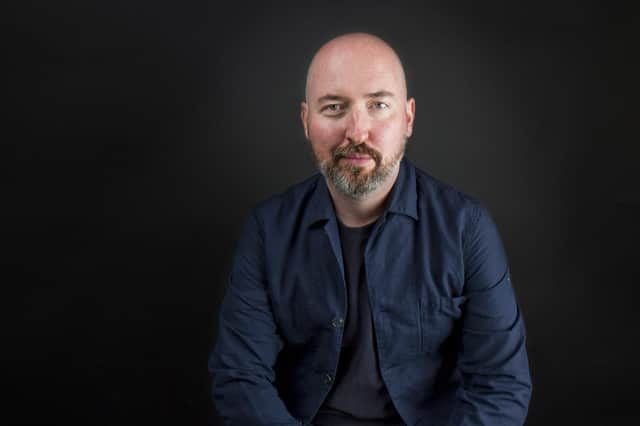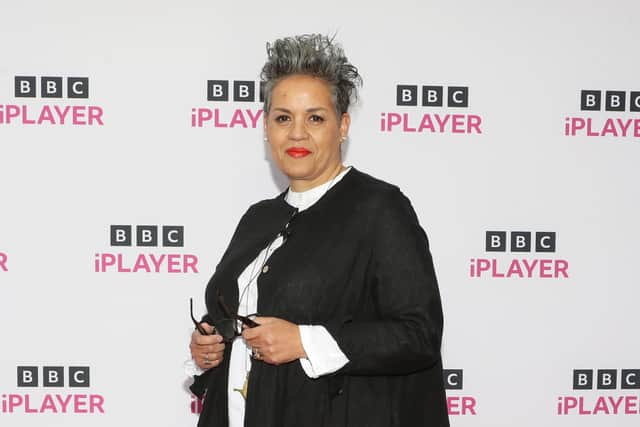Edinburgh International Book Festival reviews: Douglas Stuart | Kit de Waal | Philippe Sands | Maggie O’Farrell


The roar of welcome which greeted Douglas Stuart, as he took to the stage at the Edinburgh Book Festival, befitted a returning hero. And perhaps he is – a Scot who won the Booker Prize for his first novel, Shuggie Bain, and whose second novel, Young Mungo, is already being showered with plaudits.
Young Mungo is a gay “first love story” set in the same mean streets of Glasgow’s East End a few years after Shuggie Bain. Now, however, it’s the 1990s and unemployment and addiction are entrenched, along with violence and homophobia. In conversation with Val McDermid, Stuart admitted that his insistence, through hundreds of interviews, that Shuggie Bain was entirely fictional was, itself, a fiction: the poverty, loss and addiction Shuggie experiences around him is drawn, in part, from his own life.
Advertisement
Hide AdHe said he had avoided “second album syndrome”, writing much of Young Mungo before the fanfare around Shuggie erupted. His third book, however, a story of family and secrets set in the Outer Hebrides, is scaring him half to death. But he’s also looking ahead, saying one day he will use his 20 years’ experience in the New York fashion world to write “the real Devil Wears Prada”.


Award-winning novelist Kit de Waal vowed never to write a memoir about her “mad” childhood. Now she has, and in Without Warning and Only Sometimes, we can read in full the story she had alluded to: of her Irish-Catholic-turned-Jehovah’s-Witness mother and West Indian bus driver father, the grinding poverty of their home in Moseley, Birmingham, and the daggers of racism directed at her and her four siblings from both halves of the mixed race family.
However, in writing the book, she said, she discovered more “respect, love and understanding”than she thought possible for her parents, adding that in her darkest days of breakdown in her twenties, she came to rely on their care and support.
Barrister and writer Philippe Sands includes a personal element in his new book, The Last Colony, about his involvement in the international legal battle over the Chagos archipelago, a group of islands “dismembered” from Mauritius when the country was granted its independence and retained by the British in order to host a strategic US military base.
In conversation with Olivette Otele, Distinguished Professor of the Legacies and Memory of Slavery at SOAS, he described how the story of the Chagossian people’s eviction by the British “opened a door” for him into investigating his own family’s past in war-torn Europe. His friendship with an illiterate Chagossian woman, Liseby Elysé, whose eloquent testimony transformed the legal battle, became the impetus for the book.
The Chagossians’ fight to return to the islands, he said, touches the most fundamental of rights: “the ability of a community to decide for itself how it will be governed and where it will live”. While the situation remains unresolved under the “difficult moment” of the current Government, he is optimistic that eventually Britain will “do the right thing”.
Advertisement
Hide AdIn the first event about her new novel, The Marriage Portrait, Maggie O’Farrell described how she feels drawn to those “on the wrong side of history”. People like Lucrezia de Medici, the “overlooked and underloved” fifth child of the Grand Duke and Duchess of Florence in the 1550s, married off at 15 to the Duke of Ferrara, a man who appeared to have a plan to murder her.
It’s a “novel inspired by a poem inspired by a portrait”, which “draws back the curtain” on the woman who was the inspiration for Robert Browning’s ‘My Last Duchess’. Writing it during lockdown, O’Farrell said she came to regard the young Lucrezia “almost like one of my own children”, feeling the responsibility that comes from writing fictionally about a real life, as well as a determination to “right a wrong” and tell her story.